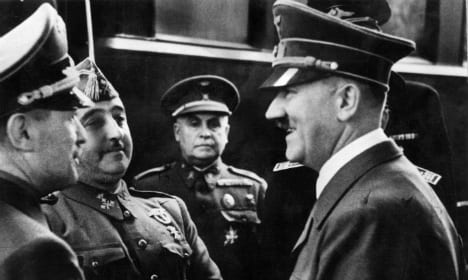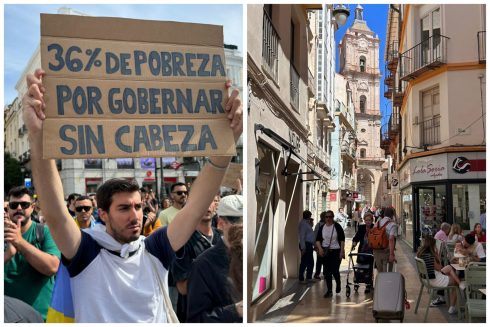NEW research has shed light on the espionage activities of thousands of Nazi collaborators and informers who lived double lives in Spain during World War II.
In the ‘Dictionary of Spies’, Catalan historian Xavier Juncosa has painstakingly examined over 25,000 documents to produce a 400-page insight into the shady lives of over a thousand Nazi agents, informers, Francoists, Fascists and French collaborationists who spied on behalf of Adolf Hitler.
Extracts from the new book have been serialised by La Vanguardia, Catalunya’s leading daily newspaper, bringing to light the vast network of agents who spied in Spain, France, Italy and Germany throughout the Second World War.
In particular, the compilation of ‘mini-biographies’ reveals how Nazi spies used businesses and modest apartments as fronts for top-secret espionage activities.
240 Carrer Consell de Cent, located in the L’Eixample neighbourhood of Barcelona, was officially recorded as being rented by Albertina Cottrell Ullmer, a retired Danish widow in her eighties – but the situation is not what it seems.
In reality, the flat is a front – Ullmer lived with Maria Betty Mayerhofer, a Munich-born woman in her fifties who is wife to Ludwig Kopp, a Nazi intelligence officer and right-hand-man to Paul Taboschat, the head of the Nazi espionage service in Spain’s second largest city.
READ MORE: The Fourth Reich: how Nazis found a safe haven in Spain – including on the Costa del Sol

Juncosa’s research highlights that this flat served as the base of operations for the network of Nazi informers in Barcelona – the flat’s interior was littered with all manner of espionage paraphernalia, including encryption devices and top-secret codes.
Elsewhere, a glass and porcelain gift shop on Passeig de Gracia, owned by Frenchman Hugo Vincon, was used as a de-facto mailbox for the network of agents who slipped around the city.
Often, a man would enter the shop, heading to the backroom and leaving an envelope which would later be picked up by a lady.
The business also acted as a discreet meeting point for Nazi collaborators, although this was soon discovered by the French intelligence services.
On Carrer de Valencia, a jeweller’s store served a dual purpose as a liaison point for Nazi informers who discussed operations in Lisbon, the capital of Portugal where another network of agents operated.
But why would the shop owner, Rudolf Bauer, agree to such a dangerous double role? The shop received a significant intake of diamonds from Antwerp which had been plundered by Nazi forces early in the war.
A female clothing store on La Rambla de Catalunya also acted as a front for informers, whilst the Ritz Hotel was a hotbed of espionage activity thanks to its head, Spaniard Ubaldo de la Fuente Ramos, working for Nazi intelligence services.
The majority of spies operating in Spain at the time – some 60% – were German, but Hungarians, Italians, Russians, Belgians and, of course, Spaniards spied on behalf of Hitler’s brutal Nazi regime.
Reflecting on his work, historian Juncosa said: “With the information and addresses I provide, a tourist route through Nazi Germany in Barcelona could soon be organised”.










